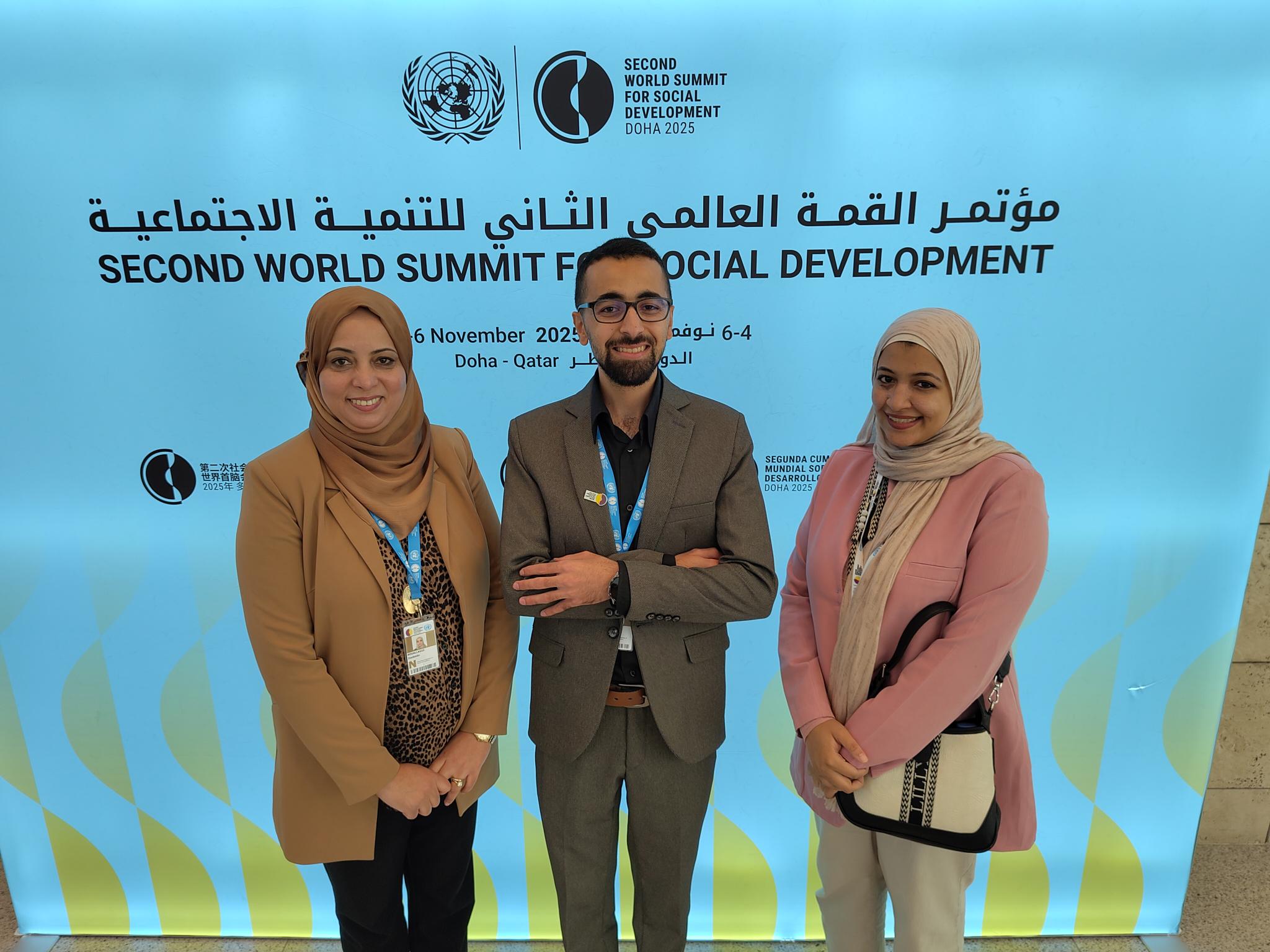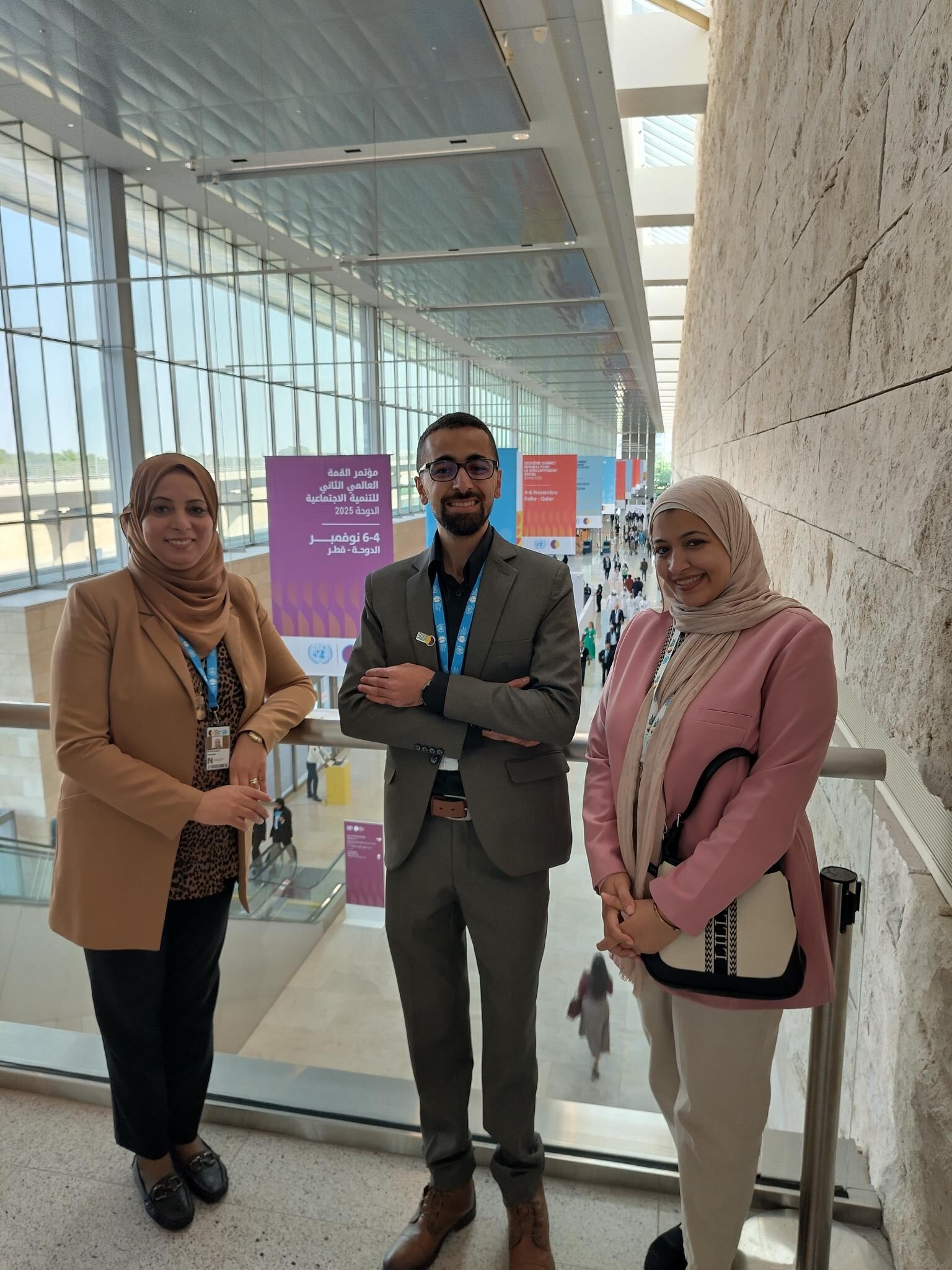New connections: Libraries at the World Summit on Social Development
10 November 2025
When it comes to advancing inclusion and labour market integration, and combatting poverty, few other institutions have the reach and flexibility of libraries. The IFLA team at the World Summit on Social Development helped open delegates’ eyes to this potential.

While the meeting of the World Summit on Social Development held in Doha, Qatar, last week was only the 2nd in 30 years, the topics on the table were ones where libraries are active every day.
IFLA’s delegation, Alaa Ahmed (Egypt), Zoubeida Bouallagui (Tunisia), and Rami Oudeh (Jordan) as well as IFLA HQ made the most of the opportunity to governments, intergovernmental organisations and other potential partners how libraries can contribute.
They highlighted in particular services and programming developed in order to reach out to communities at risk of marginalisation, and who might otherwise face discrimination. Beyond the fulfilment of the basic rights to information, education and culture, libraries open up a huge range of other possibilities.
The library team in particular stressed the role of knowledge and skills in building autonomy and agency, helping people to take control of their own lives with the appropriate support.

Crucially, as an infrastructure present across countries, libraries have the potential to be able to deliver at scale.
In turn, other delegates underlined their keenness to explore further how to mobilise libraries more effectively, as part of everything from basic literacy, trust in government and the struggle against loneliness.
Our participants will be following up on the conversations they had and the connections they made over the coming weeks in order to advance lasting improvement in the situation of libraries.
With each of their countries carrying out a Voluntary National Review of implementation of the SDGs next year, there is an opportunity already to see the contribution of our institutions and profession highlighted on the world stage.
A tool for advocacy
Meanwhile, the Summit Declaration offers a number of useful references for library advocates. Given that the Declaration was approved by all Member States a priori, these are areas where we can underline that libraries are able to help governments deliver on their commitments.
In particular, you may wish to highlight that the Declaration calls for:
- Investment in helping out-of-school youth build up their skills in order to find decent work. Libraries help by being both a portal to opportunities, and even a venue for taking these up.
- Work to bring the remaining 1/3 of the world’s population online, through ongoing investment in connectivity is vital. Public access through libraries offers both a great way to bring communities online, and a complement to household connections even in well connected societies
- Whole-of-society, people-centred approaches to social development. Libraries provide just this, as a service that is there for all, but where there is an emphasis on finding the solutions that work for each individual
- An enabling economic, political, social, cultural and legal environment to achieve social development for all, as well as equitable participation in social and cultural life. Libraries are particular important in delivering on these last two, and by offering free access ensure that wealth is not a factor
- Equitable, quality education at all levels, skills development, digital literacy education, vocational education and training and lifelong learning (in particular older persons). Again, libraries have a key role to play as part of the lifelong learning infrastructure, and have growing experience in building digital literacy
- Advancing the role of culture, in contributing to social integration and social cohesion and more effective, inclusive, equitable and sustainable development. A major way of doing this is to engage cultural institutions such as libraries.
- Strengthening equitable, safe, reliable and affordable access to digital technologies, digital public goods and digital public infrastructure. This is another library strength, particularly considering that digital public goods includes content. The Declaration also highlights the need to address disinformation and misinformation – where libraries have much to contribute!